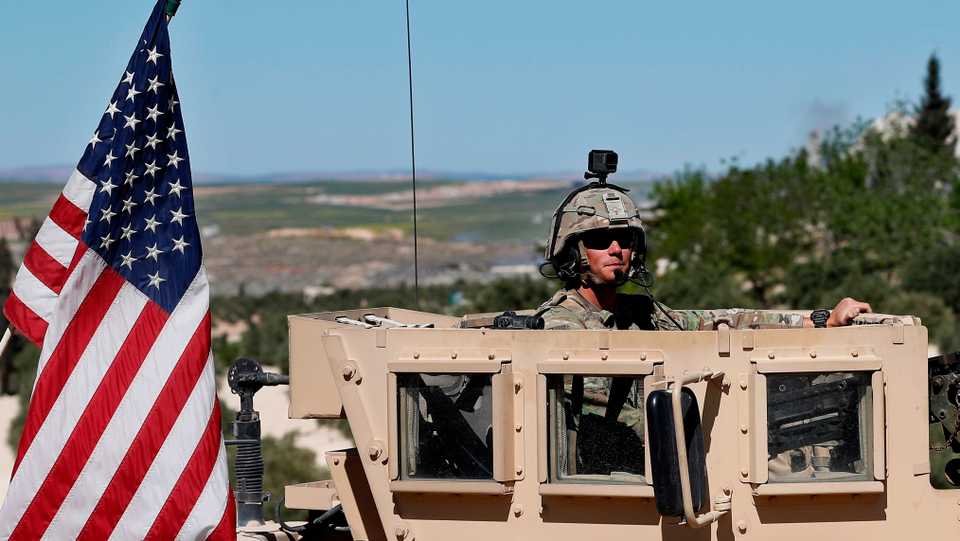
The United States appears to have recognised Turkey’s national security concerns and agreed to remove the PKK-affiliated YPG group from the Syrian city of Manbij after a meeting between Turkish Foreign Minister Mevlut Cavusoglu and his American counterpart Mike Pompeo on Monday in Washington.
The two have unveiled a roadmap that presents a three-stage process for withdrawal of the YPG from the Sunni Arab-majority city that lies just 30 km (19 miles) south of the Turkish border.
“Intelligence, military and defence officials, as well as diplomats, are set to hold a preparatory meeting in 10 days to lay the groundwork for the implementation of the roadmap, which will take less than six months,” Cavusoglu said on Tuesday.
“After the YPG terrorists withdraw from Manbij, Turkey and the US will jointly provide security in Manbij,” he said.
A Turkish diplomat who spoke to TRT World on condition of anonymity said the YPG would start to leave the city early in July, probably on the 4th or 5th, and it would be disarmed.
The YPG’s withdrawal process will be completed within 90 days, the new administration of the city will be made up of people who reflect its ethnic composition, the source said.
Contradicting messages from the US
Turkish sources laid out a clear timeline for the withdrawal, on the other hand, US officials and their staunch allies on the ground sent contradictory messages to their Turkish counterparts, raising questions in Ankara about Washington’s sincerity on the move.
“There are other elements that will take considerably longer. So I don’t think that the time frames that I’ve seen reported in the press reflect anything concrete,” a senior US state department official, who didn’t want to be named, told reporters on Wednesday.
Furthermore, Mohammed Abu Adel, the head of the Manbij Military Council, which is established and led by the YPG terror group and includes a small number of Arab elements with the encouragement of the US, said no Turkish forces or allied Syrian groups will be deployed in Manbij as per the Turkish-US deal.
The comments came following his meeting with a US delegation to the town that included the commander of the US-led international coalition to fight against Daesh, Major General James Jarrard, and veteran Middle East diplomat William Roebuck.
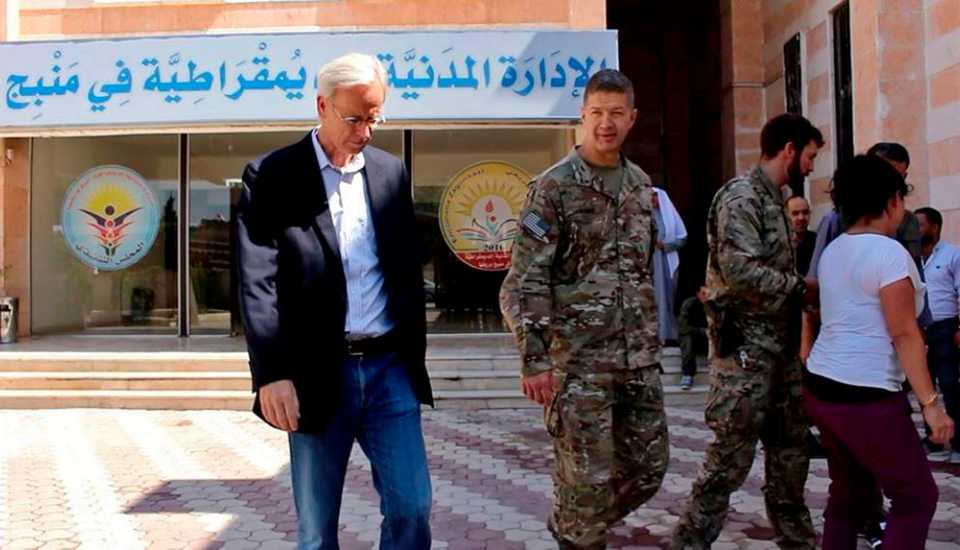
An American promise not kept
The YPG is the Syrian branch of the PKK, which Turkey, the US and the EU regard as a terrorist group. PKK has been fighting the Turkish state for more than 30 years and the fighting has left more than 40,000 dead, including civilians.
The group declared its desire for an autonomous region in northern Syria since the beginning of the Syrian conflict.
However, Washington has chosen the group as an ally on the ground against Daesh in Syria despite Ankara’s protest.
In an attempt to calm down its ally, the US formed the Syrian Democratic Forces (SDF), a coalition of Syrian militants from different ethnic groups in 2015. However, it was just a rebranding, the group is dominated by the YPG.
Backed by the US, they started an operation to capture the strategic Manbij city from the Daesh group in 2016.
Turkey protested the operation and demanded the immediate removal of the group from the city as it poses a threat to the nation.
The Obama administration had promised Turkey that the YPG wouldn’t stay in Manbij, and that the group would withdraw to the east of the Euphrates river after the fight had concluded in the city.
Ten days later, on the day when then US vice president Joe Biden visited Ankara, Turkey began Operation Euphrates Shield, its first military operation in northern Syria to defeat Daesh.
The operation held strategic importance, as it took place between Manbij and Afrin and prevented a possible YPG-controlled corridor that would have posed a threat to Turkish national security.
“We have made it absolutely clear to the elements that were part of the Syrian Democratic Forces, the YPG that participated, that they must move back across the river. They cannot, will not, and under no circumstances get American support if they do not keep that commitment, period,” then US vice president Joe Biden said during a visit to Ankara in August 2016.
The promise was not kept.
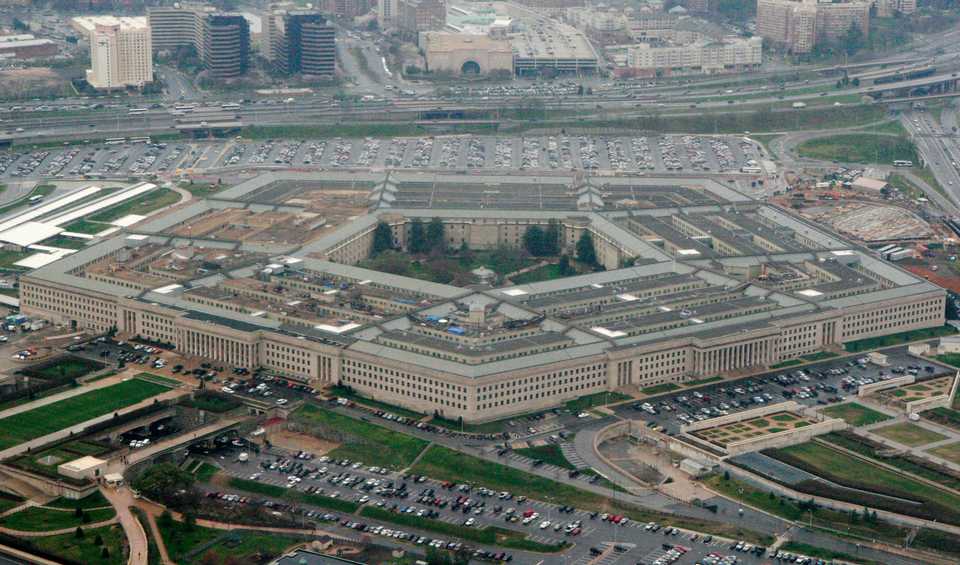
Pentagon vs the White House
A year later, the US announced a military operation against Daesh in Raqqa, the de facto capital of the group since 2014.
The plan proposed a strategy of training the YPG militants, providing them with new equipment, and helping them retake the city.
It was established by president Barack Obama before he left office.
Donald Trump was reported to have quickly dismissed the detailed plan and demanded an alternative one early in February 2017.
Ankara was hopeful with the dismissal of the plan, and offered the Trump administration a joint military operation against Daesh, with the support of the local armed forces from Raqqa.
But the Pentagon insisted on cooperating with the YPG, and made it public in order to put pressure on Donald Trump himself and to give a clear message to the Turks.
A few weeks after Trump’s dismissal, when a new decision was not yet made, three American journalists were brought to a YPG training camp on an Osprey aircraft in Manbij by the Pentagon ahead of the battle in Raqqa.
The military training base built in Manbij along with the comments from the YPG militants and their American advisers showed that they would use the YPG in the Raqqa battle, and the training was in Manbij, so that they wouldn’t leave the city, despite the US promises to Turkey.
Raqqa was taken from Daesh in October 2017, but the YPG continued its presence there afterwards.
On January, the Pentagon-led coalition against Daesh announced another controversial plan to set up a 30,000-strong border force composed of YPG members along Syria’s border with Iraq and Turkey.
Turkey considered this move as a threat to its national security.
On January 20, Turkish forces launched another military operation, Operation Olive Branch, in the YPG-held Syrian city of Afrin which is only about 100 km (62 miles) from Manbij. Along with the Free Syrian Army, Turkey cleared the area from terrorist groups in two months.
According to the Turkish diplomat who spoke to TRT World on condition of anonymity, during that period US President Trump reiterated that he doesn’t want an escalation between the forces of the two countries.
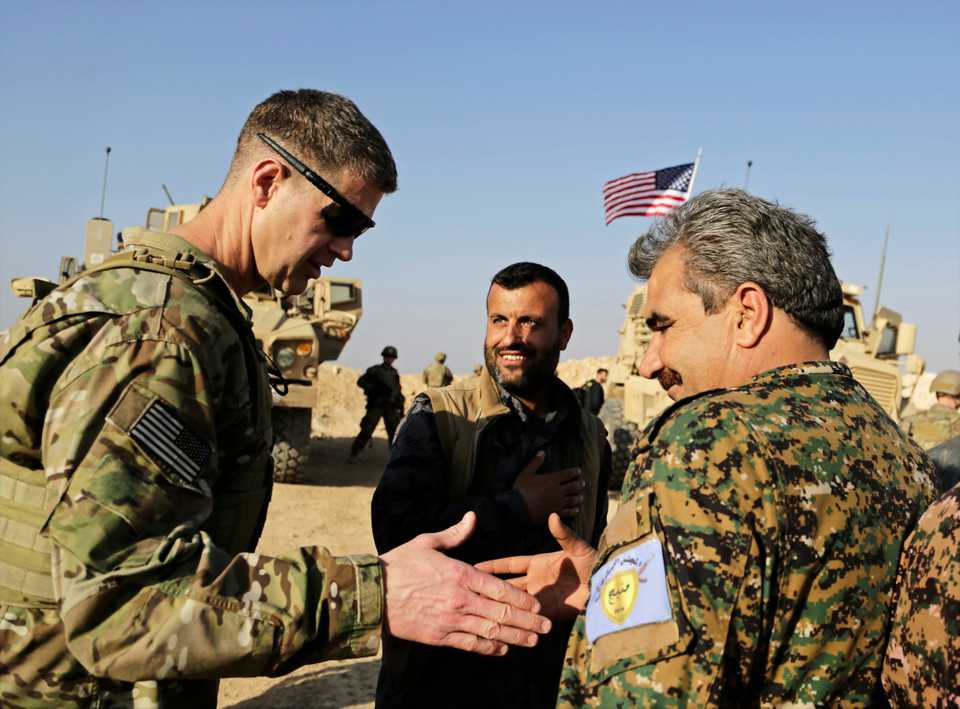
In early February, Turkish President Recep Tayyip Erdogan said Turkish forces would move to Manbij to hand over these territories to their rightful owners when Operation Olive Branch concluded.
Two top US commanders in the anti-Daesh coalition, Lt General Paul E Funk and Major General James Jarrard, deliberately visited the city a day after Erdogan’s statement.
While in Manbij, Funk told the reporters, “You hit us, we will respond aggressively.”
The same month, former US Secretary of State Rex Tillerson visited Ankara in an attempt to ease the tension between the two NATO allies. During the visit, Turkey and the US established a mechanism to address separate issues in working groups, including the stabilisation of Manbij and to prevent any undesirable clashes in Syria.
The talks were interrupted when Tillerson was ousted by Trump, and eventually resumed after Mike Pompeo took office in late April. And in less than two months, the agreement was reached.
Meanwhile late in March, US President Donald Trump announced that he would withdraw US troops from Syria “very soon.”
The Pentagon again signalled that it was not on the same page with the president, working on plans to send dozens of additional US troops to northern Syria.
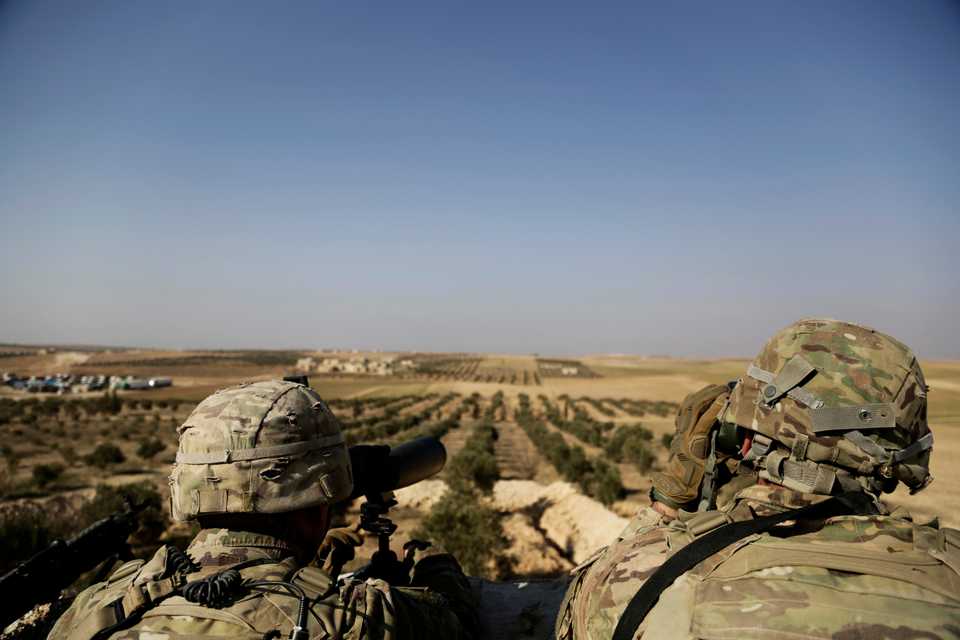
‘Turkey can act alone’
Ankara and Washington are going to discuss the more technical details of the YPG withdrawal process, including the security and the administration of Manbij in coming weeks, according to Turkish sources.
The group will leave behind weapons supplied by the United States, and withdraw to the east of the Euphrates River.
“Once [the implementation of] Manbij model is completed, a similar model will be applied to other areas of Syria occupied by the terrorist YPG,” Cavusoglu said in an optimistic tone when compared with the US officials from the State Department.
The YPG claimed that it withdrew some forces – what it described as its “military advisors” – from Manbij a day after Cavusoglu’s announcement of the deal.
Local sources who spoke to Anadolu Agency denied the group’s claims and said its members were still hiding out both in the city centre and in outlying districts.
Another Turkish diplomat who attended the meeting in Washington and didn’t want to be named because of the sensitivity of the issue, told TRT World that Turkey made it very clear that Turkish forces had the capacity to act alone in Manbij despite the US presence there, in case the YPG does not withdraw.

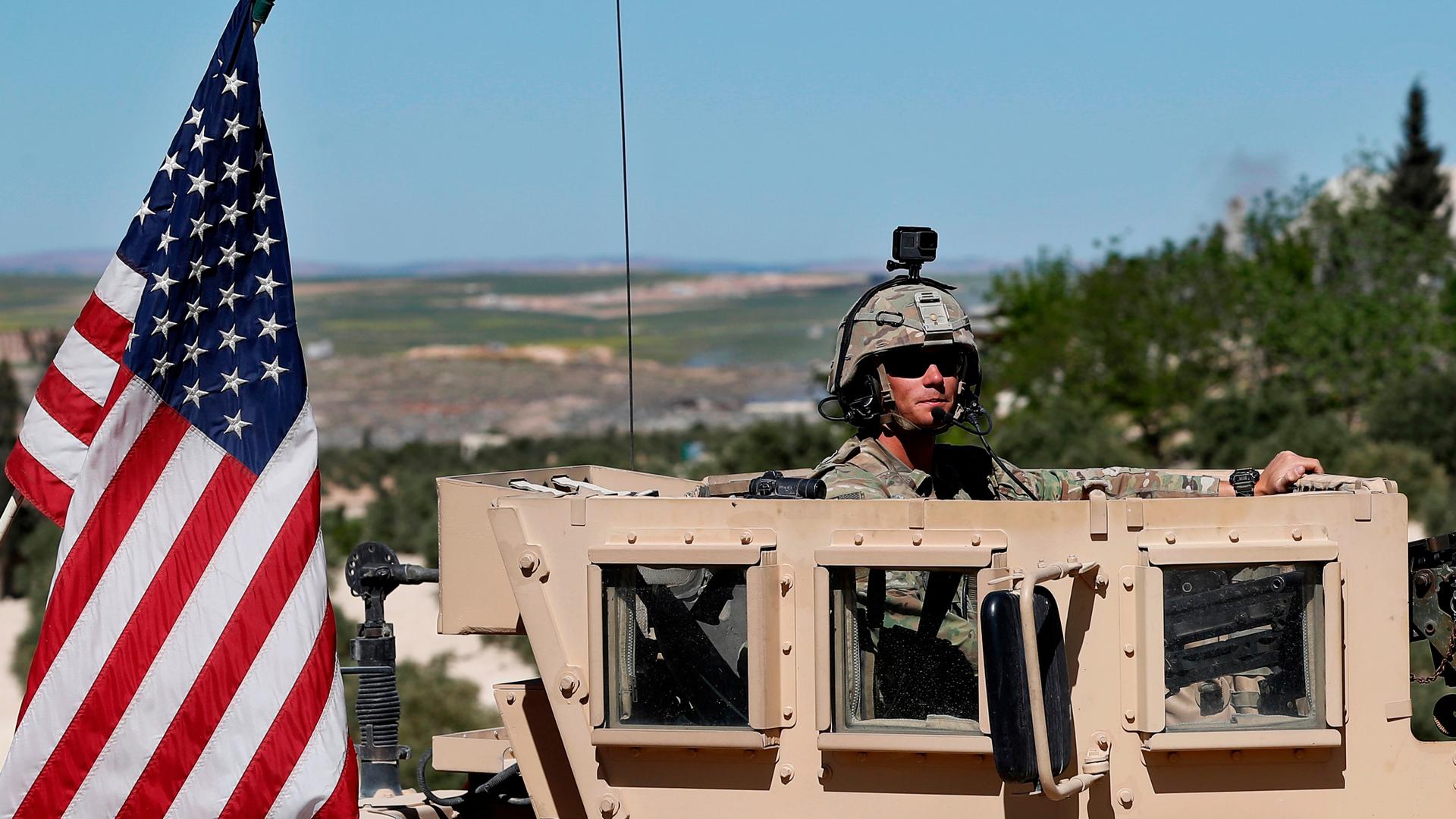








Discussion about this post